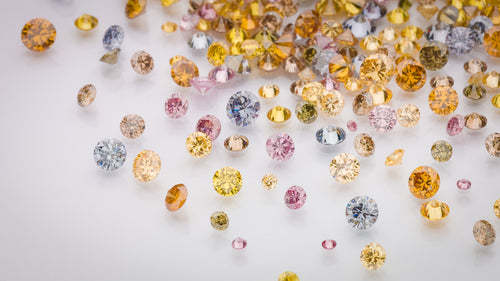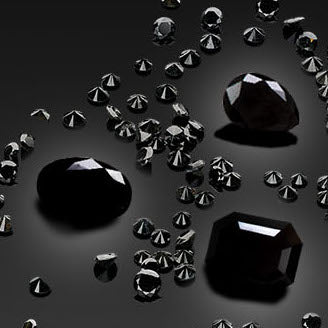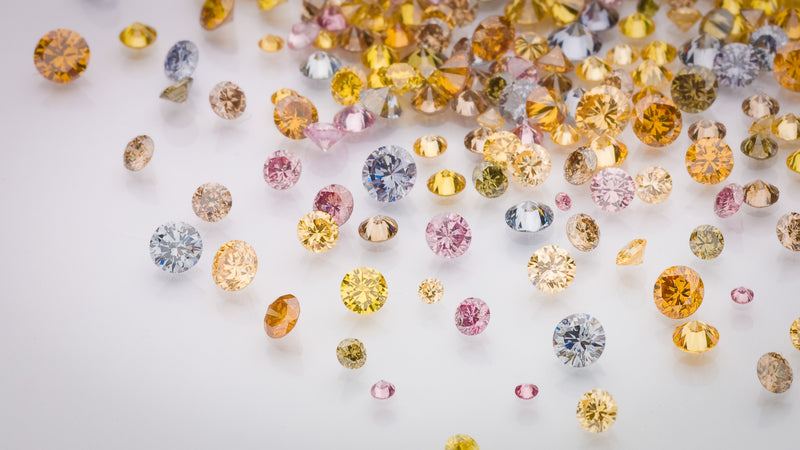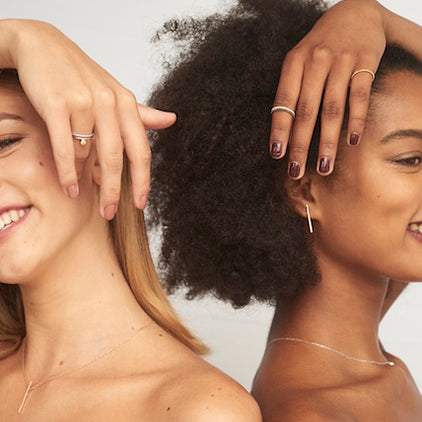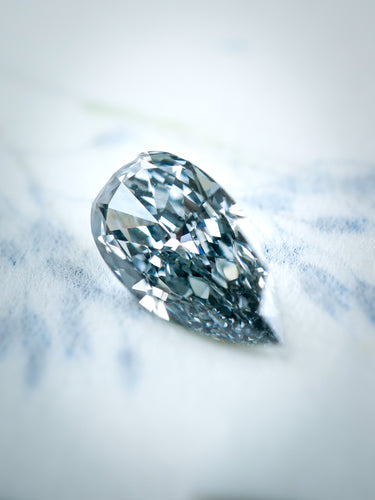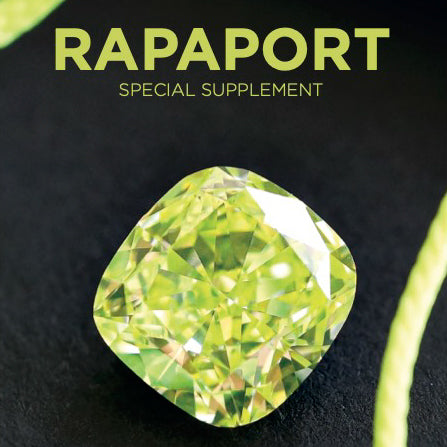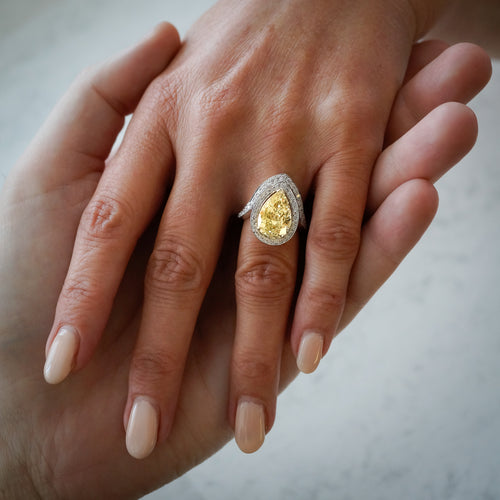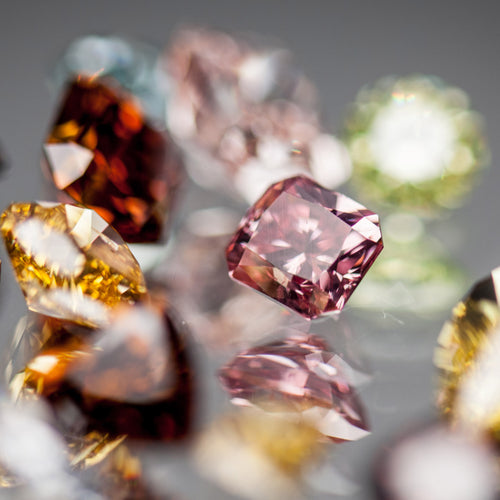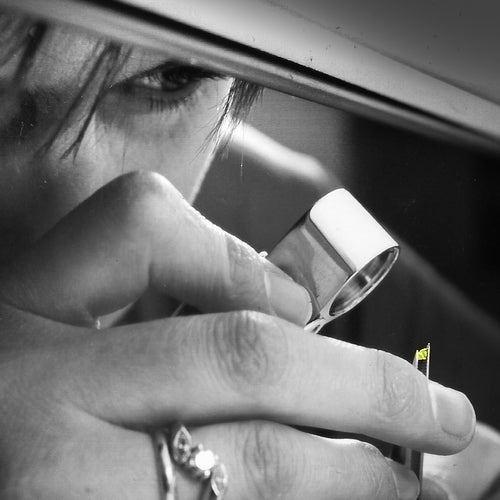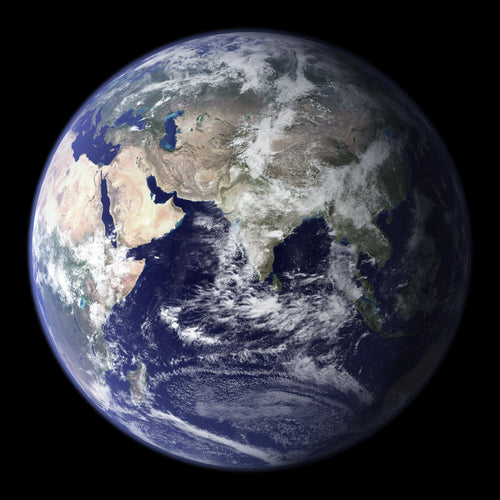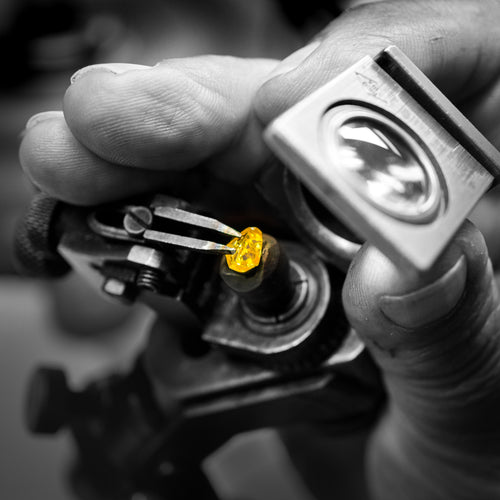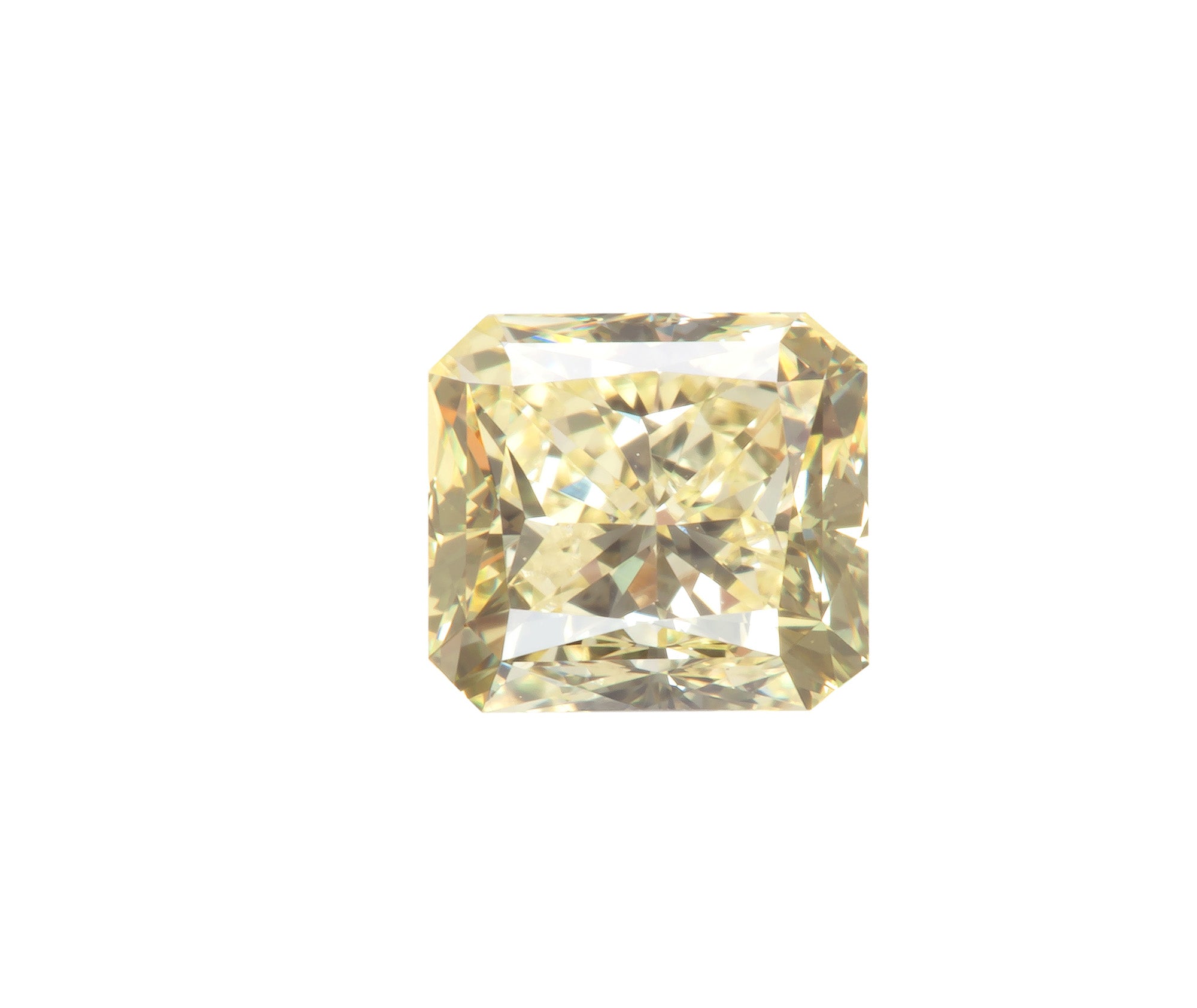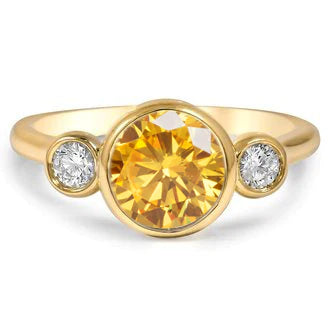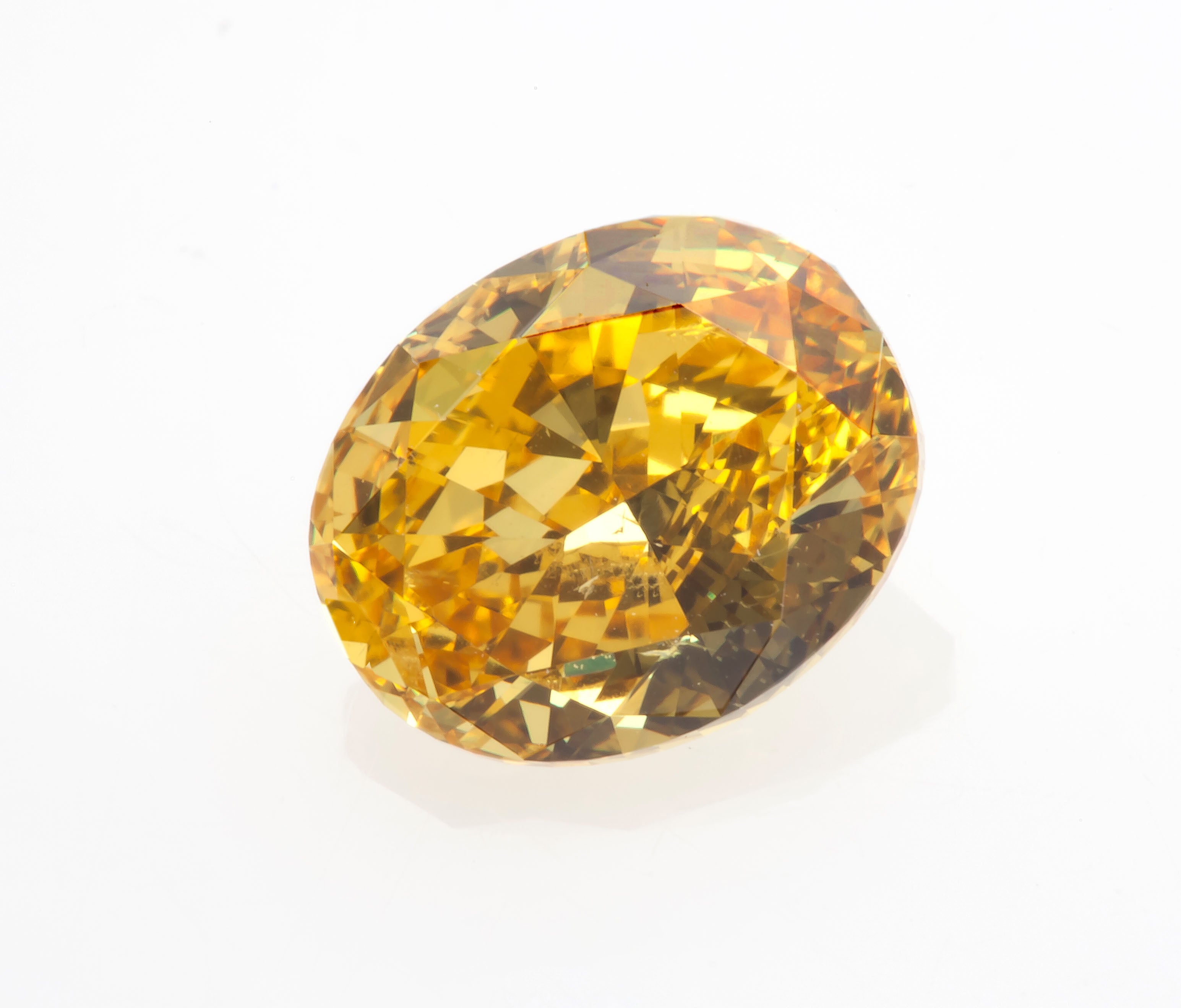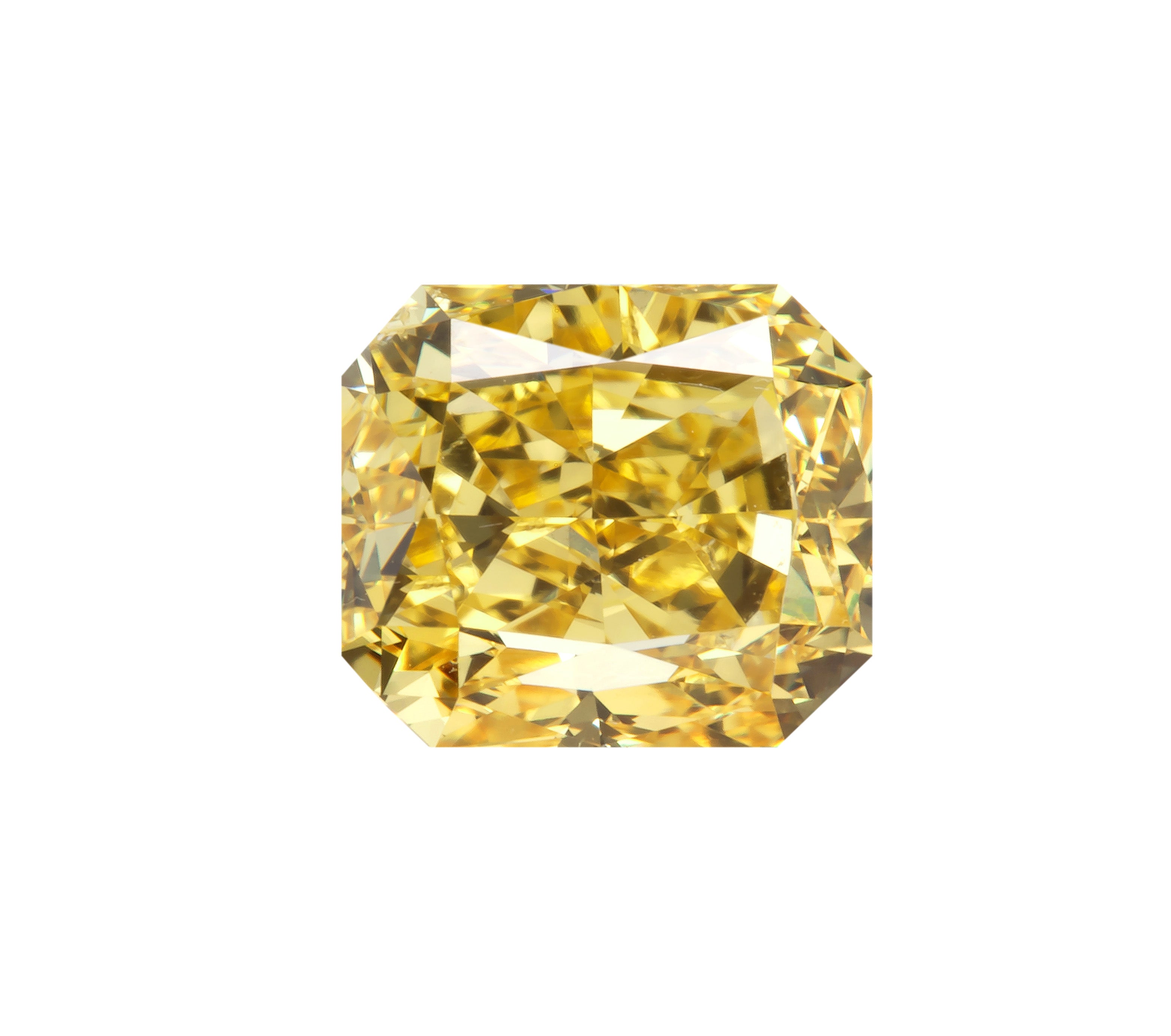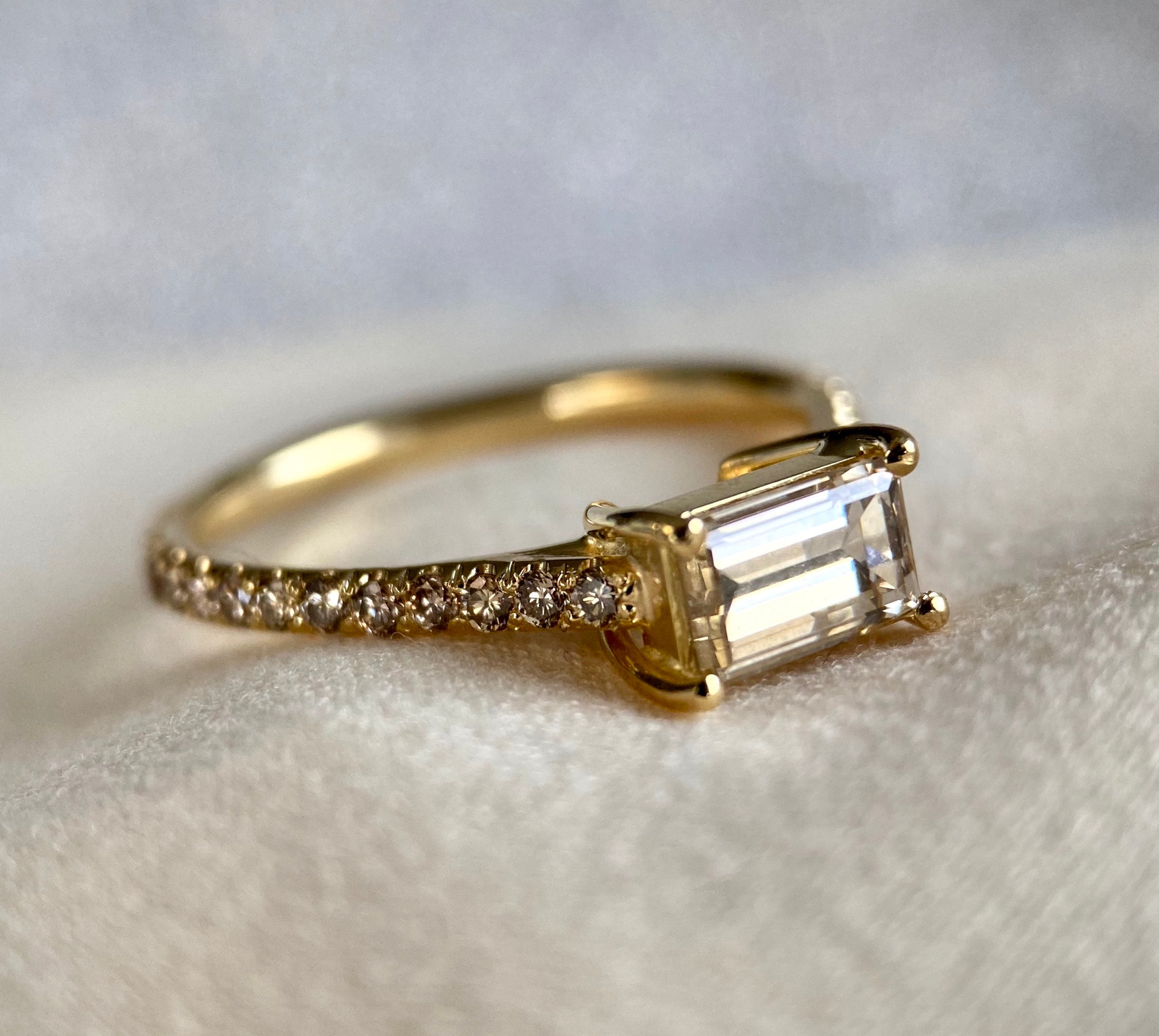

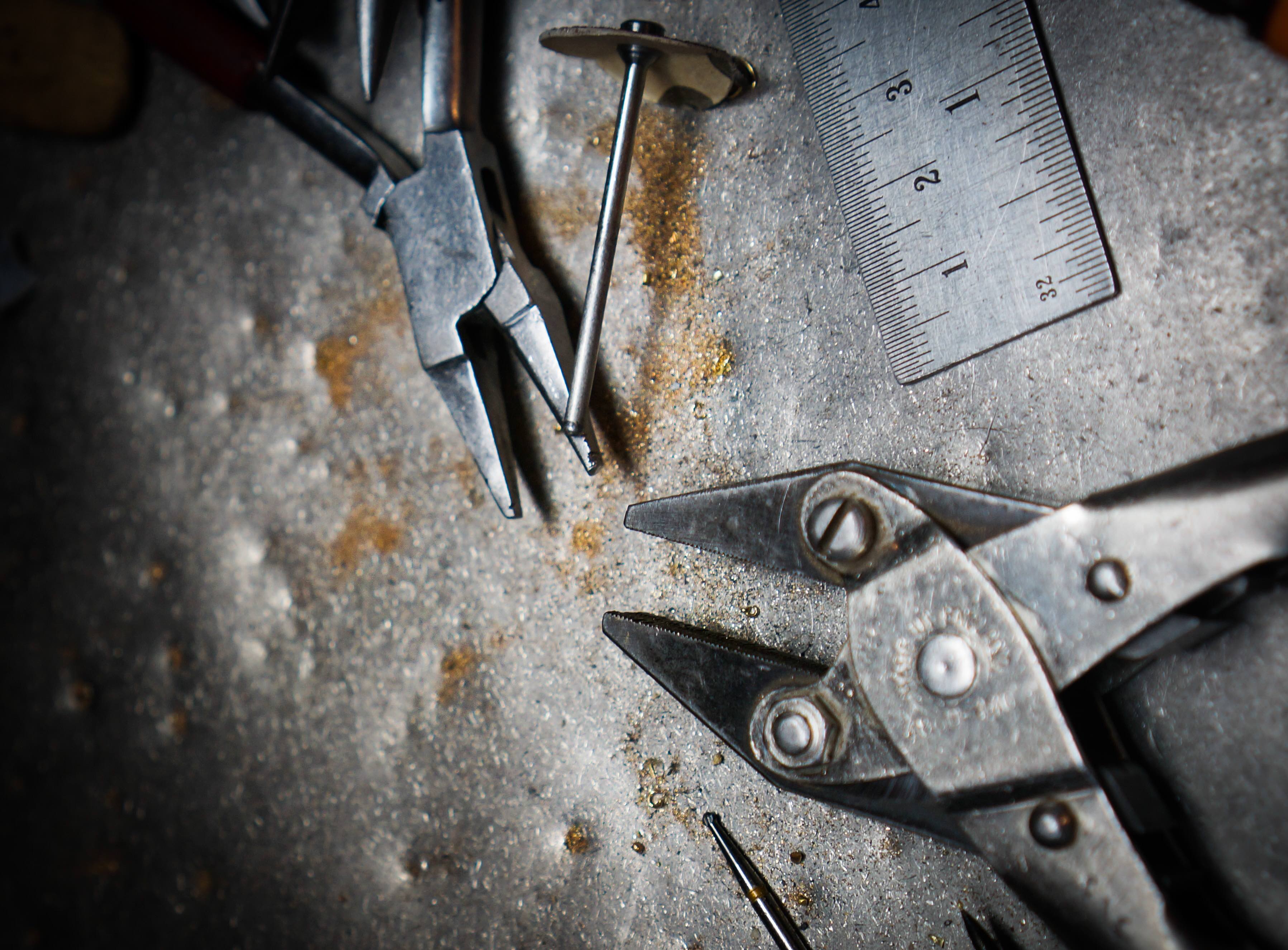
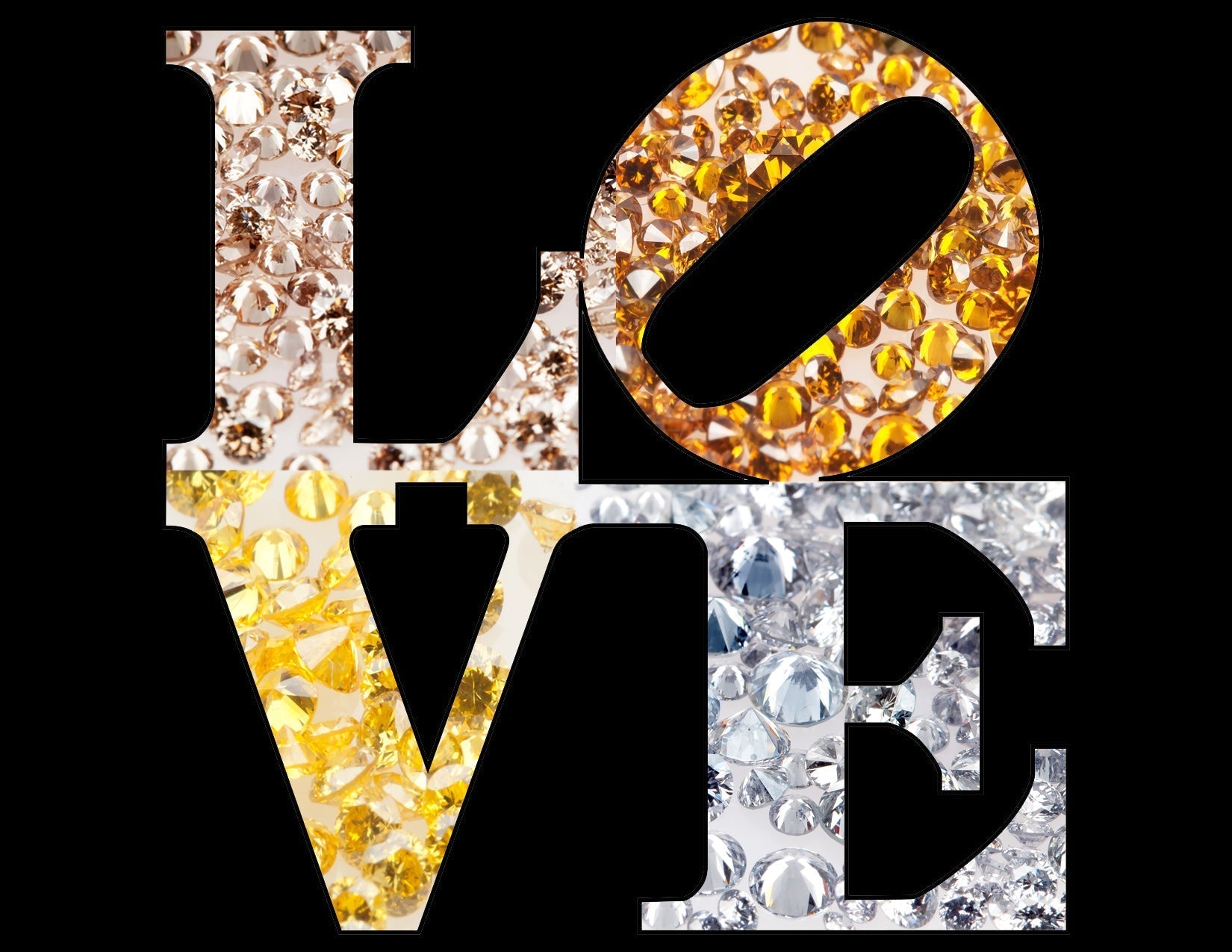
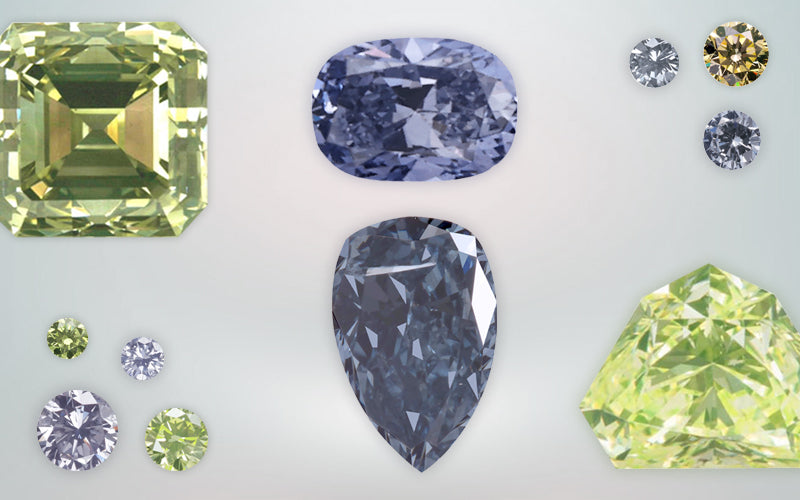

Fancy Yellow Diamonds and Other Yellow Gemstones

Yellow diamonds have long captivated jewelry enthusiasts. Admired for their sunlit hues and thanks to famous diamonds like the Golden Eye, yellow has become one of the most popular Fancy colors.
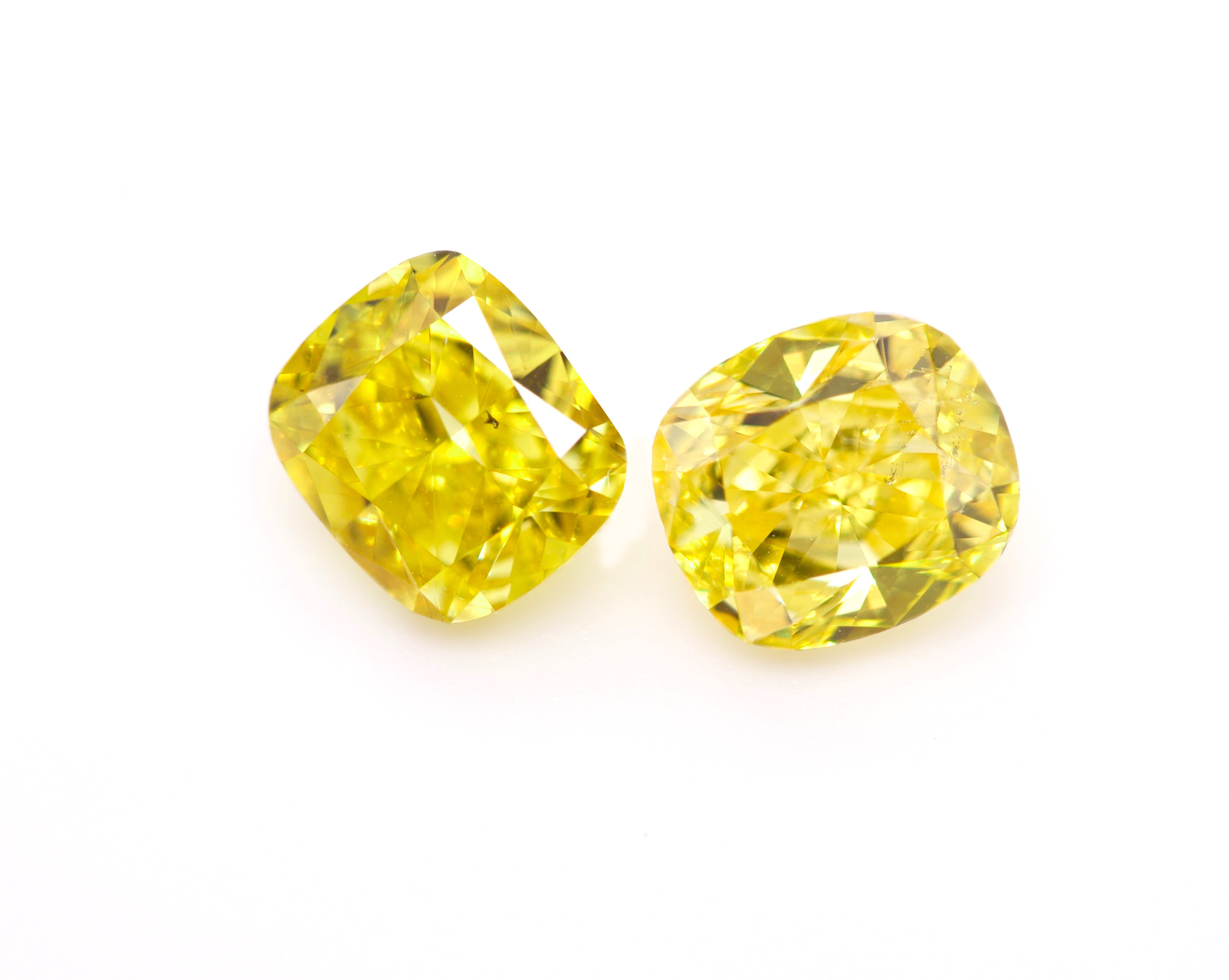
Canary is the most sought-after, admired for its intensity and rarity. And for those who prefer subtle hints of color, the light tone of Vanilla diamonds is the perfect choice.
At Langerman Diamonds, we use evocative names to differentiate each specific hue and connect them to memories and objects everybody is familiar with. For example, our Saffron diamonds exhibit a warm, slightly orange undertone.
You are probably familiar with other yellow stones used in jewelry such as yellow sapphire or citrine. This might raise the question, beyond color, what sets Fancy Yellow diamonds apart?
In this article, you will discover:
- The origin of yellow diamonds
- Properties of a diamond
- All you need to know about citrine, yellow sapphire, tourmaline and topaz
- How to select a yellow diamond
The Warmest Color: Fancy Yellow
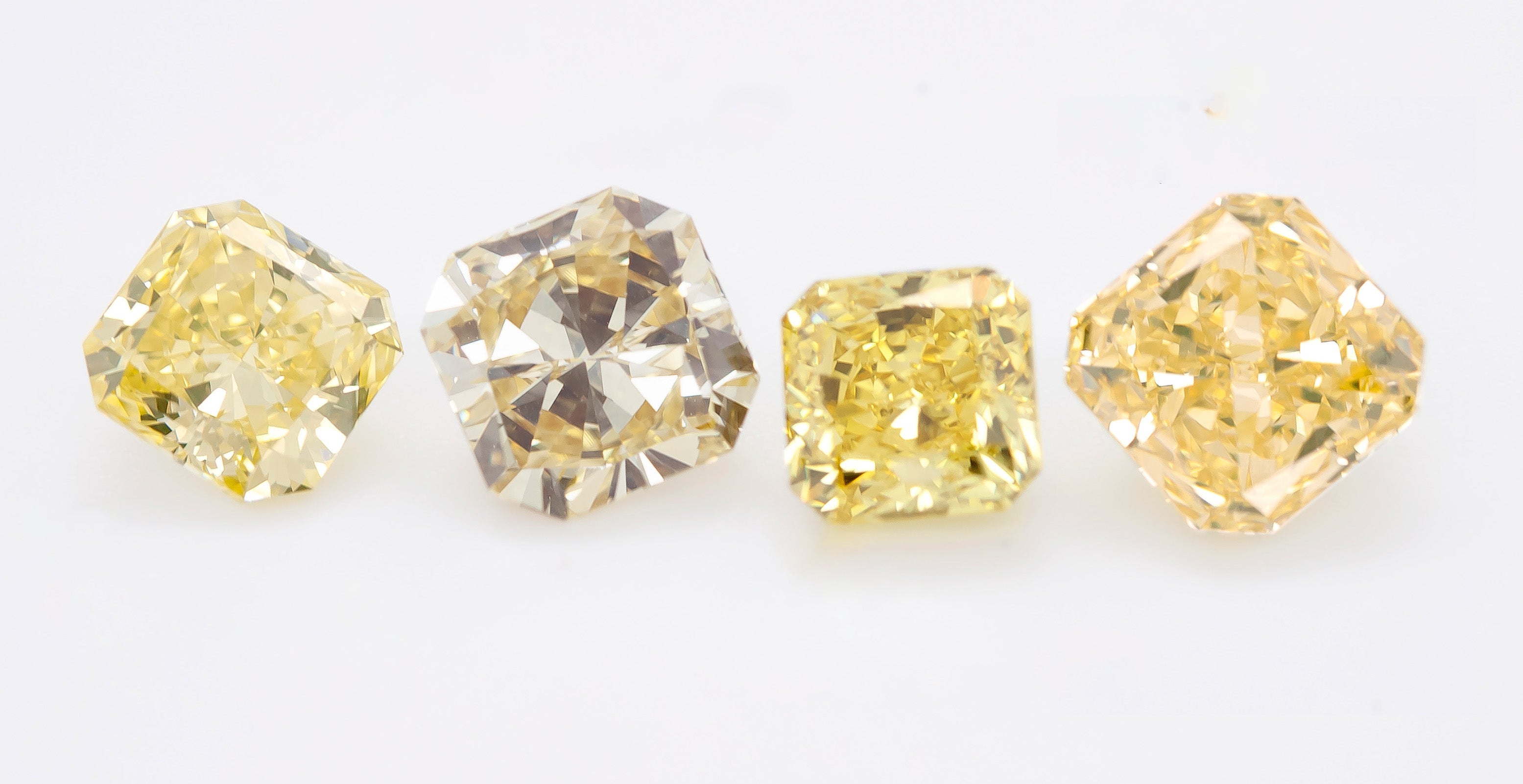
From deep Honey to vivid Jonquile, natural yellow diamonds can display a captivating variety of tones. Their golden hues are complemented by rose and yellow gold settings, while the coolness of white gold makes them stand out.
Just like white or colorless diamonds, Fancy Yellow diamonds formed naturally underground. In a process that lasted millions of years, nitrogen atoms were incorporated into the diamond’s crystal structure by chance and changed how the stone interacts with light, resulting in unique yellow and orange stones.
Interested to know more? Read our Guide to Natural Yellow diamonds next
The Exceptional Qualities of a Diamond
Diamonds became one of the favorite gemstones to embellish high jewelry pieces with and are the first choice for engagement and bridal jewelry. Its prevalence is not the sole outcome of mere marketing, but a conscious preference based on specific properties that place diamonds in a privileged spot against other options.
Here are three reasons why diamonds are valuable:
1. Their Hardness
Diamonds are the hardest mineral in the world, which means they are highly resistant to scratches contributing to their superior durability. Certain pieces like engagement rings and tennis bracelets are often worn daily and subjected to the occasional drop or scrape. Diamonds are up to the task, unlike other precious gemstones that would pose a higher risk of scratching, chipping, or even breakage.
2.Their Sparkle
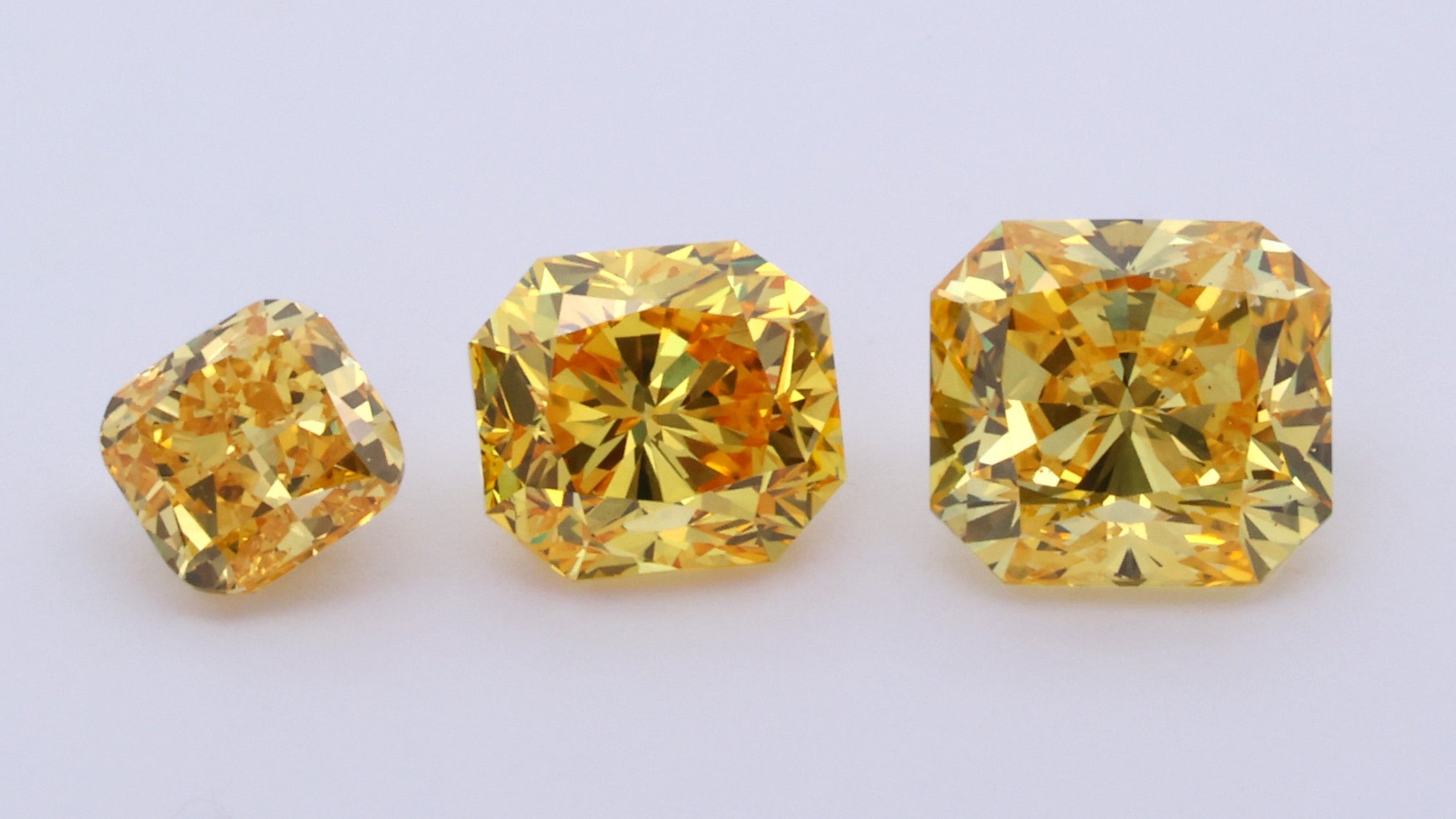
One of the most attractive qualities of diamonds is their appearance. They have a high refractive index and, when cut to the highest standards, display extraordinary brilliance, fire, and scintillation.
3. Their Rarity
Traditionally, diamonds are graded under a 4 C’s system that determines the quality of their color, cut, clarity, and measures their carat weight. The better the grades and the higher the carat, the rarer and more valuable the diamond is. Fancy color diamonds, however, are approached differently; color becomes the most important value-determining quality of all.
Some colors are harder to come by than others and therefore, more expensive. The intensity and evenness of the color also play an important role. All in all, Fancy Yellow diamonds are considered a sound investment.
Exploring Other Yellow Gemstones
Yellow Sapphire
Blue corundum is the most known variety of sapphire but it's naturally available in multiple other colors such as green, yellow, and pink. While sapphires score a high 9 on the Mohs scale, they are more prone to scratching than diamonds.
Another important aspect to consider is the widespread practice of clarity and color enhancements. Sapphires commonly undergo heat treatments but there are other procedures more invasive such as fracture filling and diffusion which are considered more controversial and aren’t always disclosed. A lab report is crucial to make an informed decision before buying a sapphire.
Yellow Topaz
With a hardness of 8, topaz is suitable for jewelry but requires more care than diamonds and sapphires. The same color enhancement concerns arise with this popular yellow stone, as irradiation and surface coating are often used to attain bright, saturated colors.
Topaz is an economical option for a reason; if treated, its color can fade over time due to prolonged exposure to heat or sunlight.
Yellow Tourmaline
Yellow tourmaline exhibits a cheerful yellow color and scores a hardness of 7 to 7.5 on the Mohs scale. In addition to being a softer material, topaz has a higher porosity which also impacts its durability as it can absorb residues of creams and lotions and be tricky to clean.
Citrine
Citrine is the yellow variety of crystal quartz and resembles yellow topaz. It has a hardness level of 7, making it still suitable for jewelry. However, careful consideration must go into selecting a setting, to protect it better against potential impacts.
Most citrine is made by heat-treating other varieties of quartz such as amethyst or smoky quartz. which are both more common and less expensive. By applying heat the gems change their light color color light to a more golden yellow.
The Ultimate Luxury
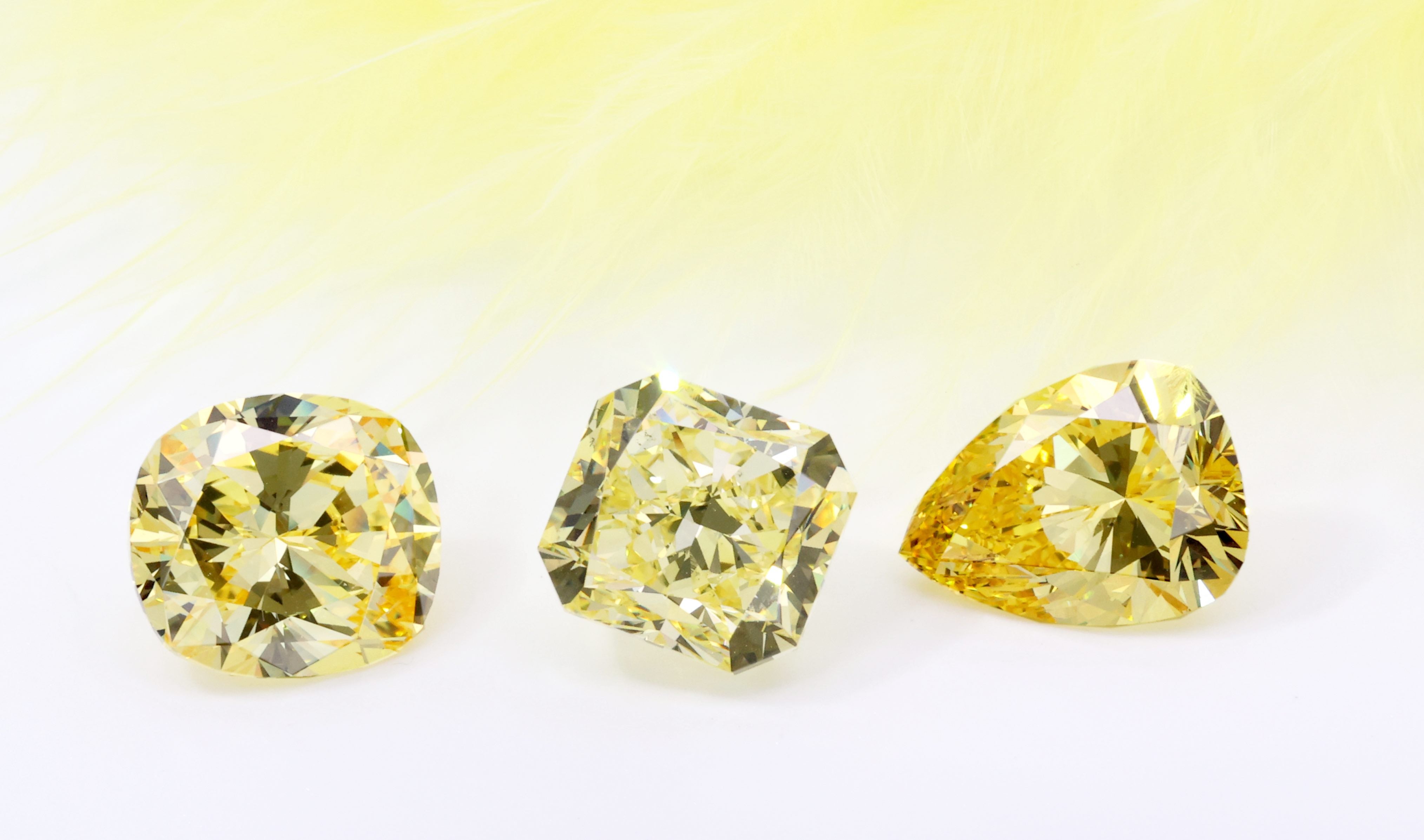
An old saying states that beauty is in the eye of the beholder and, if a yellow stone is what you’re looking for, there are a handful of options to pick from. Each kind offers different shades and degrees of durability, but there is a superior choice: Fancy Yellow diamonds.
For their rarity, value, unrivaled brilliance, and natural variety of tones, Fancy Yellow diamonds take the crown as the most alluring gemstone for fine jewelry and the best investment.
Explore our online inventory of loose Yellow diamonds
—
Contact us to learn more about our specialized services which include sourcing loose diamonds and creating bespoke jewelry.
